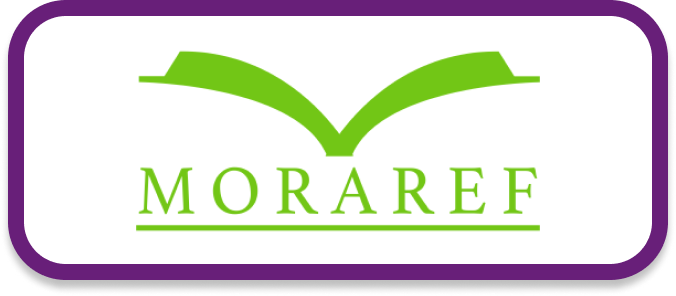ECOLEARNING TEMATIK SEBAGAI MODEL PEMBELAJARAN DI SEKOLAH DASAR
Abstract
The use of learning models is one of the most important things in the process of implementing learning in elementary schools. The learning model applied in learning in elementary schools is the thematic ecolearning model. The purpose of this study was to determine the practical value of the thematic ecolearning model as a learning model in elementary schools. This type of research uses descriptive qualitative research. The research subjects were teachers and fourth grade students of SDN 9 Kuala Langsa. The results of this study describe the following; 1) Students are able to solve environmental problems in the learning process by using the thematic ecolearning model; 2) Learning problems that arise in everyday life make it easier for students to solve their problems; 3) Students are motivated in the learning process by using the thematic ecolearning model; and 4) Students are interested in learning to use the thematic ecolearning model.
Keywords
Full Text:
PDFReferences
Ariyani, Yusinta Dwi, dan Muhammad Nur Wangit. 2016. “Pengembangan Bahan Ajar Tematik-Integratif Berbasis Nilai Karakter Peduli Lingkungan dan Tanggung Jawab”. Jurnal Pendidikan Karakter 6(1): 116-29.
Aprilia Fahrina, Karla Amelia dan Cut Rita Zahra, Peran Guru dan Keberlangsungan Pembelajaran Di Masa Pandemi Covid-19, ( Aceh: Syiah Kuala University Press,2020), hal. 33
Goleman, D., et al. (2012). Ecoliterate, How Educators are Cultivating Emotional, Social, and Ecological Intelligence, San Francisco: Jossey-Bass.
Mullenbach, L. E., and G. T. Green. (2018). “Can Environmental Education Increase Student-Athletes’ Environmental Behaviors?” Environmental Education Research 24(3): 427–444. doi:10.1080/13504622.2016.1241218.
Li, C. J., and M. C. Monroe. (2019). “Exploring the Essential Psychological Factors in Fostering Hope concerning Climate Change.” Environmental Education Research 25(6): 936–954. doi:10.1080/13504622.2017.1367916.
Lake, K. (1994). Integrated curriculum. Retrieved from http://www.curriculumassociates.com/professionaldevelopment/topics/Integrated-Curriculum/extras/lesson1/Reading-Lesson1.pdf.
Lipson, M., Valencia, S., Wixson, K., & Peters, C. (1993). Integration and thematic teaching: Integration to improve teaching and learning. Language Arts, 70, 252–264.
O’Donoghue, R. B., Board, N. P., and McNaught. C. (1991). Ènviromental Education; The Development of a Curriculum Through ‘grass-roots’ Reconstructive Action. International Journal of Science Education. 13:4, 391-404, doi: 10.1080/0950069910130403.
Ojala, M. (2012). “Hope and Climate Change: The Importance of Hope for Environmental Engagement among Young People.” Environmental Education Research 18(5): 625–642. doi:10.1080/13504622.2011.637157.
Supriatna, N. (2016). “Ecopedagogy: Membangun Kecerdasan Ekologis dalam Pembelajaran IPS”. Bandung: PT Remaja Rosdakarya.
Sefer, J. (2005). Kreativne aktivnosti u tematskoj nastavi [Creative activities in the thematic oriented curriculum]. Belgrade, Serbia: Institut za pedagoˇska istraˇzivanja.
Stanišic, J., and Maksic, S., (2014) Environmental Education in Serbian Primary Schools: Challenges and Changes in Curriculum, Pedagogy, and Teacher Training, The Journal of Environmental Education, 45:2, 118-131, DOI: 10.1080/00958964.2013.829019.
Stevenson, R. B. (2007). Schooling and environmental education: contradictions in purpose and practice. Environmental Education Research, 13(2), 139–153 https://doi.org/10.1080/13504620701295726.
Scotter. 2000. Van Foundation of Education; Social Perspective. New Jersey: Prentice Hall, Inc., Englewood Cliffs.
Stevenson, K. T., T. L. King, K. R. Selm, M. N. Peterson, and M. C. Monroe. (2018). “Framing Climate Change Communication to Prompt Individual and Collective Action among Adolescents from Agricultural Communities.” Environmental Education Research 24(3): 365–377. doi:10.1080/13504622.2017.1318114.
Vars, G. (1991). Integrated curriculum in historical perspective. Education Leadership, 49(2), 14–15.
Varela-Candamio, L., I. Novo-Corti, and M. T. Garc_ia-_Alvarez. (2018). “The Importance of Environmental Education in the Determinants of Green Behavior: A Meta-Analysis Approach.” Journal of Cleaner Production 170: 1565–1578. doi:10.1016/j.jclepro.2017.09.214.
Oviana, W., & Rijal, F. (2021). The Role of Islamic Higher Education Institution in Developing Students' Character Value. AL-ISHLAH: Jurnal Pendidikan, 13(1), 570-580
DOI: http://dx.doi.org/10.22373/pjp.v11i1.13085
Refbacks
- There are currently no refbacks.
Copyright (c) 2022 Fadhil Sidiq, Nana Supriatna, Sapriya Sapriya, Wahyu Sopandi

This work is licensed under a Creative Commons Attribution-ShareAlike 4.0 International License.

























